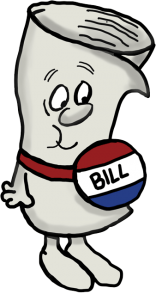Promoted by the Pennsylvania Association of School Business Officials (PASBO), House Bill 530 pretends to strengthen the Charter School law in Pennsylvania. However, it, in fact, weakens Charter Schools in a number of areas.
The following ten items in House Bill 530 are anti-charter provisions:
- It calls for a 19 person “Funding Advisory Commission” to explore funding issues related charter schools and make recommendations to the PA General Assembly. 11 of these 19 positions will be potentially chosen by political appointees of the sitting governor, four from the Democrat House and Senate and four from the Republican House and Senate.
- This bill, while creating a “Funding Advisory Commission” for charter schools, establishes the premise that all charter schools should be treated with greater accountability and less money. It assumes that charter schools have more money than they need and should be forced to accept funding cuts and/or escrow provisions that school districts would not face. In other words, it encodes into law that charter schools are second class public schools.
- The same politicians that crafted and passed this bill, making charter schools second class public schools, will control the entire makeup of the funding commission.
- It forces all PA Charter Schools “that issues debt to hold in escrow and amount sufficient to pay the annual amount due.” Charter Schools are not asking for this, nor are any of the Charter School lenders.
- It cuts funding for Cyber Charter Schools (5+% average – as much as 17% in some districts)
- It forces all payments to PA Charter Schools to come from the state. It remains unclear from the language of the bill as to whether the state has the ability to withhold payments to Charter Schools as the state has done in the past when the PA State budget has been delayed as much as three and one half months.
- It places limits on the reserves of charter school entities, similar to the limits placed on school districts, with any excess over the established limit being returned to school districts that paid tuition to the charter school These same reserves in school districts are not forced to be returned. At of the end of the 2011 budget year, Pennsylvania school districts had more than $3.2 billion in reserve funds.
- Despite the fact that Cyber Charter Schools are not allowed to receive the normal public school state reimbursement for buildings, it requires these same schools to be subject to numerous school building codes – including “outhouses!”
- Instead of referring a truant student back to the home school district for truancy adjudication, as the law currently allows, House Bill 530 requires Cyber Charter Schools to deal with the student’s home court system – even if the student lives in Erie, while the Cyber Charter School is headquartered in Philadelphia.
- Districts and I.U.s can now offer online instruction. Because there is no mention of them being held to the same Performance Matrix, they may have no accountability. Currently, an I.U. is operating/administrating PVA (Philadelphia Virtual Academy). They have the lowest SPP score in the entire state: 13 (70 is The baseline).


